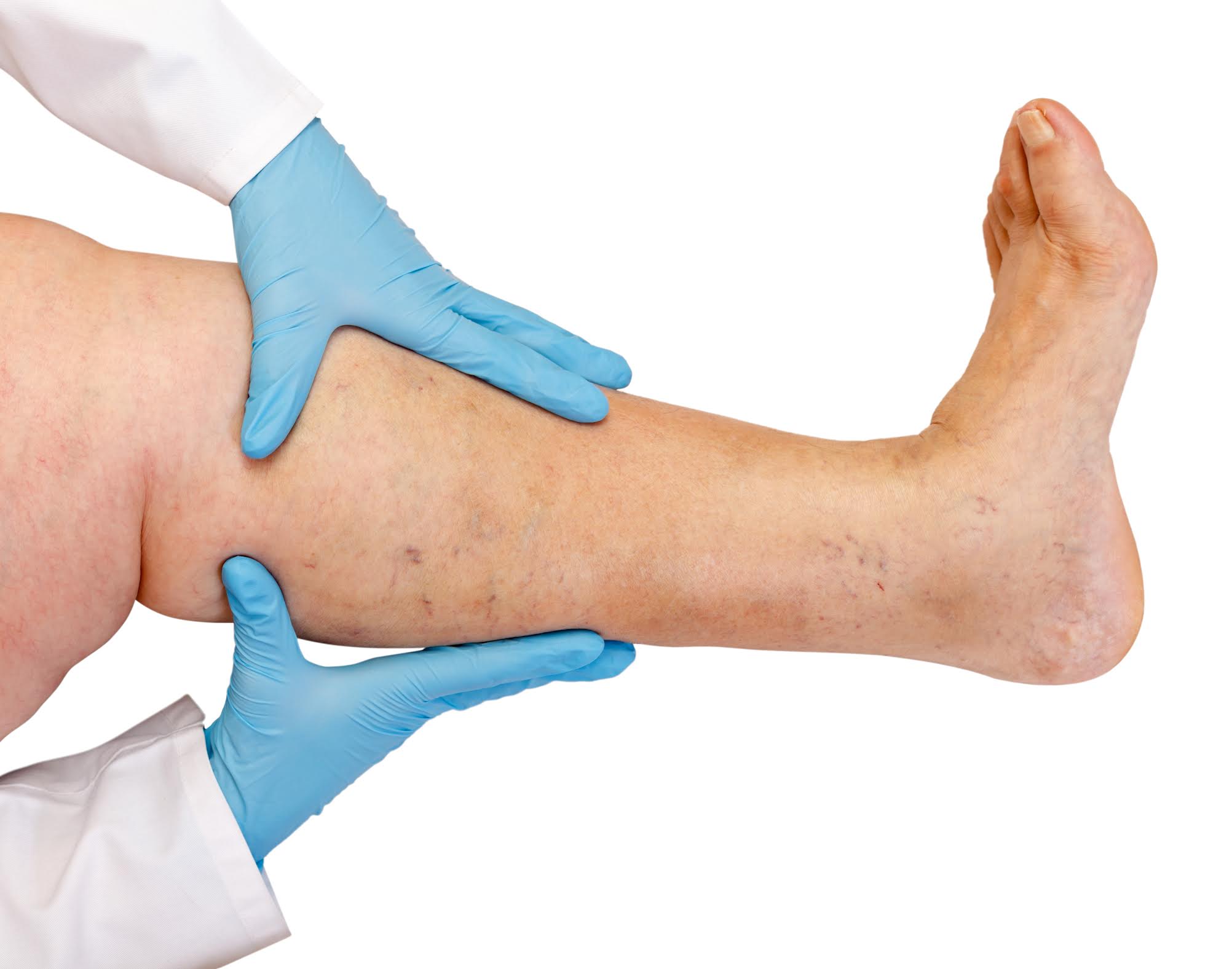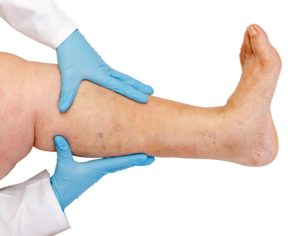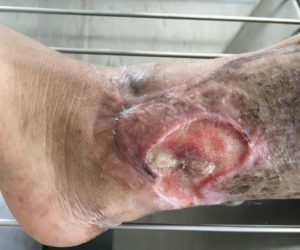
17 Oct Important Facts You Should Know About Venous Insufficiency and Wounds
 We all take walking and running for granted until something happens in our bodies to threaten our legs or our feet. Then we don’t take our lower limbs as such a sure thing anymore. We feel it is so important to take care of our legs and feet that we put together a few bits of information everyone should know about how venous insufficiency induces leg and foot wounds. Let’s start with a few basics.
We all take walking and running for granted until something happens in our bodies to threaten our legs or our feet. Then we don’t take our lower limbs as such a sure thing anymore. We feel it is so important to take care of our legs and feet that we put together a few bits of information everyone should know about how venous insufficiency induces leg and foot wounds. Let’s start with a few basics.
What is venous insufficiency?
When your legs are healthy, the blood in them keeps moving toward your heart. We call the mechanism that moves the blood a “valve”. If you have chronic (long-term) venous insufficiency, the veins in your legs weaken and the condition damages the valves in your legs. When the valves can’t move the blood like they should, the blood pools in the veins in your legs. This is especially true when you stand.
What causes venous insufficiency?
There are many possible causes but generally it occurs if you have varicose veins or blood clots in the legs. The condition can also be caused by a valve dysfunction, often a hereditary condition.
Is this a common condition?
Yes. About 40% of the population has venous insufficiency and it is more often found in women (especially those who have had multiple pregnancies) than in men. It is also found in people who are middle-age or older.
Is the condition treatable?
Yes. Treatment includes exercise, weight loss if necessary, and compression stockings. In the more serious cases, treatment may require vein stripping, angioplasty or stents. Even with such treatment, the condition can recur requiring further treatment.
What happens if I leave the condition untreated?
This is a very serious concern. If left untreated, venous insufficiency can cause leg or foot ulcers. Venous leg ulcers are wounds that are chronic and can take six weeks or more to heal.
You usually find venous ulcers on the inside of your leg just above the ankle. You may feel pain or itching, and notice swelling of the affected leg or foot.
 How do doctors know if venous insufficiency or something else causes the wound?
How do doctors know if venous insufficiency or something else causes the wound?
Your doctor will run tests to determine his diagnosis. One thing your doc will do is test to see if the cause is peripheral arterial disease (commonly poor circulation) or maybe even nerve problems. He will check the blood pressure in your leg or foot. If it is low, then it is more likely peripheral arterial disease. It’s important that he determine the cause because the treatments for poor circulation are very different from treatments for venous insufficiency. Blood tests will also rule out anemia, diabetes, kidney issues, or rheumatoid arthritis — all of which can aggravate or cause skin ulcers.
So, let’s say I have venous insufficiency and I have ulcers on my leg. How would you treat the ulcer?
First, we clean and dress the ulcer like any other wound. The most important part of any treatment, however, is something we call a compression bandage. A compression bandage consists of two to four layers of bandages on top of the wound dressing. We want to counter the pressure in the leg so we layer the compression bandages from ankle to knee and thigh. We apply pressure (in the form of tight bandages) with the highest pressure at the ankle and getting less toward the knee and thigh. The bandages are re-applied every week or so. Keeping the leg elevated for a while before our nurses change the compression bandages and for 30-minute periods throughout the day is an important part of the treatment process.
To talk more about venous insufficiency and ulcers, or anything else, please contact us. Dr. Hochstein has advanced training in surgery and wound care. He is ready to put his advanced training to work for you and your family because your health is important to us.
We are proud that we are part of the Great Neck, Long Island, and metro New York community. Let us care for you.





Sorry, the comment form is closed at this time.